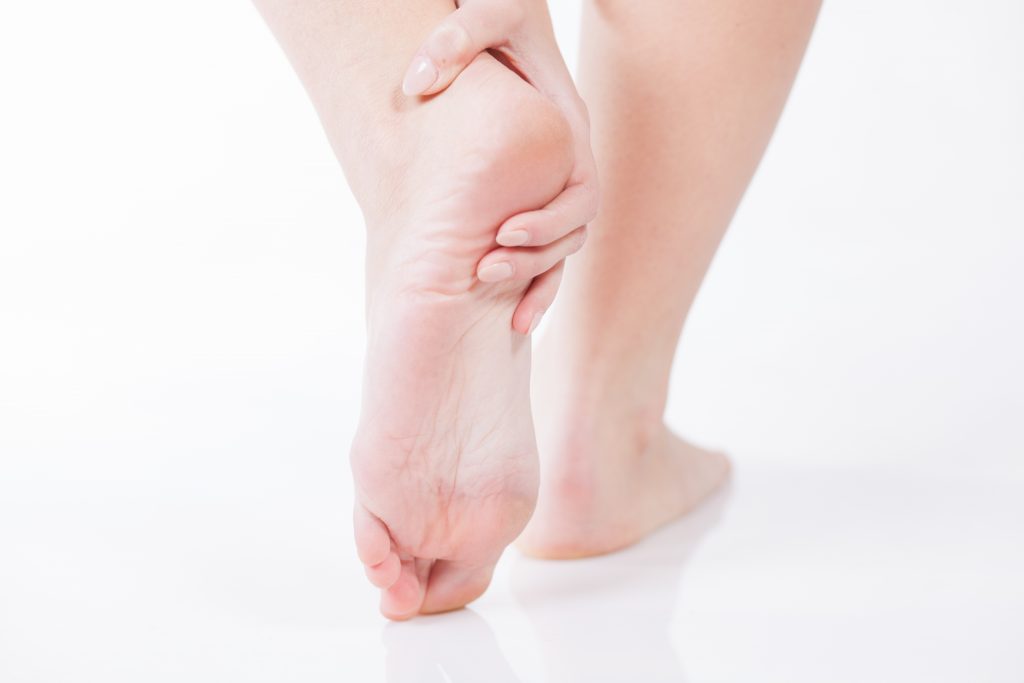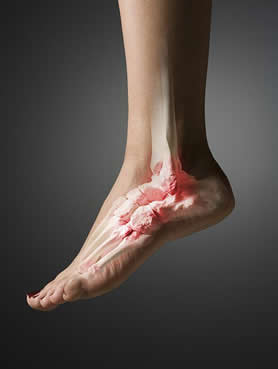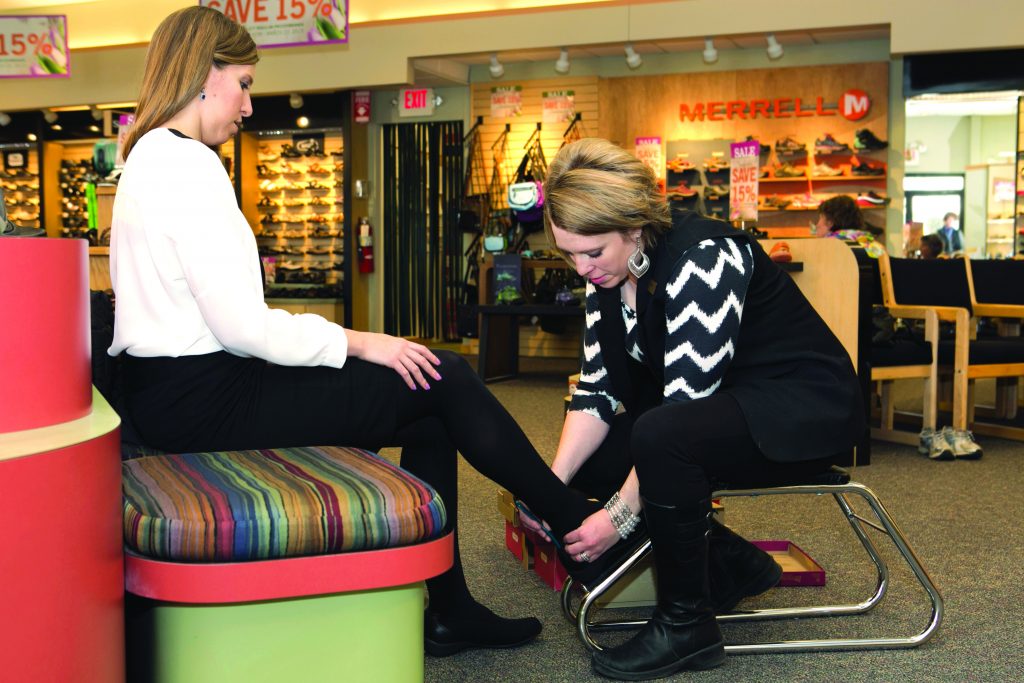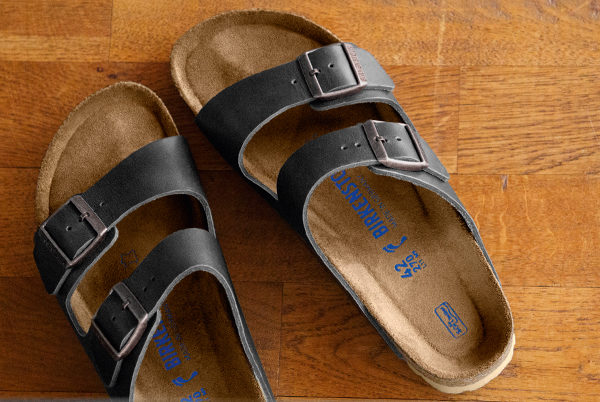
Of all the foot issues we address at Schuler Shoes, heel pain is one of the most common. Read on to find out how our team of fit specialists and Board Certified Pedorthists (CPeds) address one of the leading conditions associated with heel pain.
Is Your Heel Pain Caused by Plantar Fasciitis?
 “Roughly one in ten people that walk through our doors have some kind of heel pain or arch pain,” says Shelley Lawrence, Schuler Shoes Assistant General Manager. The most common culprit: plantar fasciitis (PLAN-tur fas-e-I-tis).
“Roughly one in ten people that walk through our doors have some kind of heel pain or arch pain,” says Shelley Lawrence, Schuler Shoes Assistant General Manager. The most common culprit: plantar fasciitis (PLAN-tur fas-e-I-tis).
“Plantar fasciitis is really interesting because it can affect anybody and everybody, from athletes to sedentary people to younger kids.” -Shelley Lawrence, Assistant General Manager of Schuler Shoes
According to the Mayo Clinic, plantar fasciitis involves inflammation of the thick band of tissue that runs across the bottom of your foot, connecting your heel bone to your toes. Much like a rubber band, under too much stress and tension this shock-absorbing tissue can start to develop small tears.
Eventually, these tears lead to inflammation and symptoms like a sharp pain or dull ache near the heel in the bottom of the foot—especially after you first step out of bed in morning.
Addressing Your Plantar Fasciitis with Footwear
Footwear is an important part of the plantar fasciitis healing process. Because of the pain, many tend to gravitate to shoes that have more of a soft or cushy feel when, in fact, a firmer arch support is needed to decrease tension in the plantar fascia. At Schuler Shoes, our experienced fit specialists have been trained by our Board Certified Pedorthists (CPeds), often working in tandem to select supportive footwear.

Brenda Singel, Certified Pedorthist (CPed) at our Woodbury store, uses her advanced training to address foot issues like plantar fasciitis with proper footwear and over-the-counter devices.
Shelley, whose been working in-store with Schuler Shoes customers for over 18 years, says finding a shoe for those with plantar fasciitis is often about striking a balance:
“A lot of times it’s just about getting people in a more supportive shoe than they’re currently wearing. If someone comes in wearing ballerina flats and I find a happy medium between what I want them to wear and what they pick, with an arch support, I’m good because it’s that next step in care.”
An Advanced Evaluation for Plantar Fasciitis
For those with more complex or chronic cases of plantar fasciitis, our team of CPeds are available to offer an advanced evaluation. They’ll even work with your doctor to make sure you’re on the road to recovery. Brenda Singel, Cped of our Woodbury store, weighs in on how she addresses plantar fasciitis:
Brenda Singel, CPed at our Woodbury store

” I start by asking if they have seen a doctor or Podiatrist and what they have been doing to relieve the symptoms. Do they stretch, use ice, soak their feet in Epsom salts, or wear a night splint? I also ask if they are wearing a supportive shoe around the house or are they primarily walking around barefoot?
Then I recommend a great house shoe similar to a Haflinger or Giesswein. I’ll also show proper footwear, stretches, and an over-the-counter orthotic, if the situation calls for it.”
If you have heel pain, please visit any of our nine neighborhood locations. Need an advanced appointment with a CPed? Click here to schedule your free appointment.


